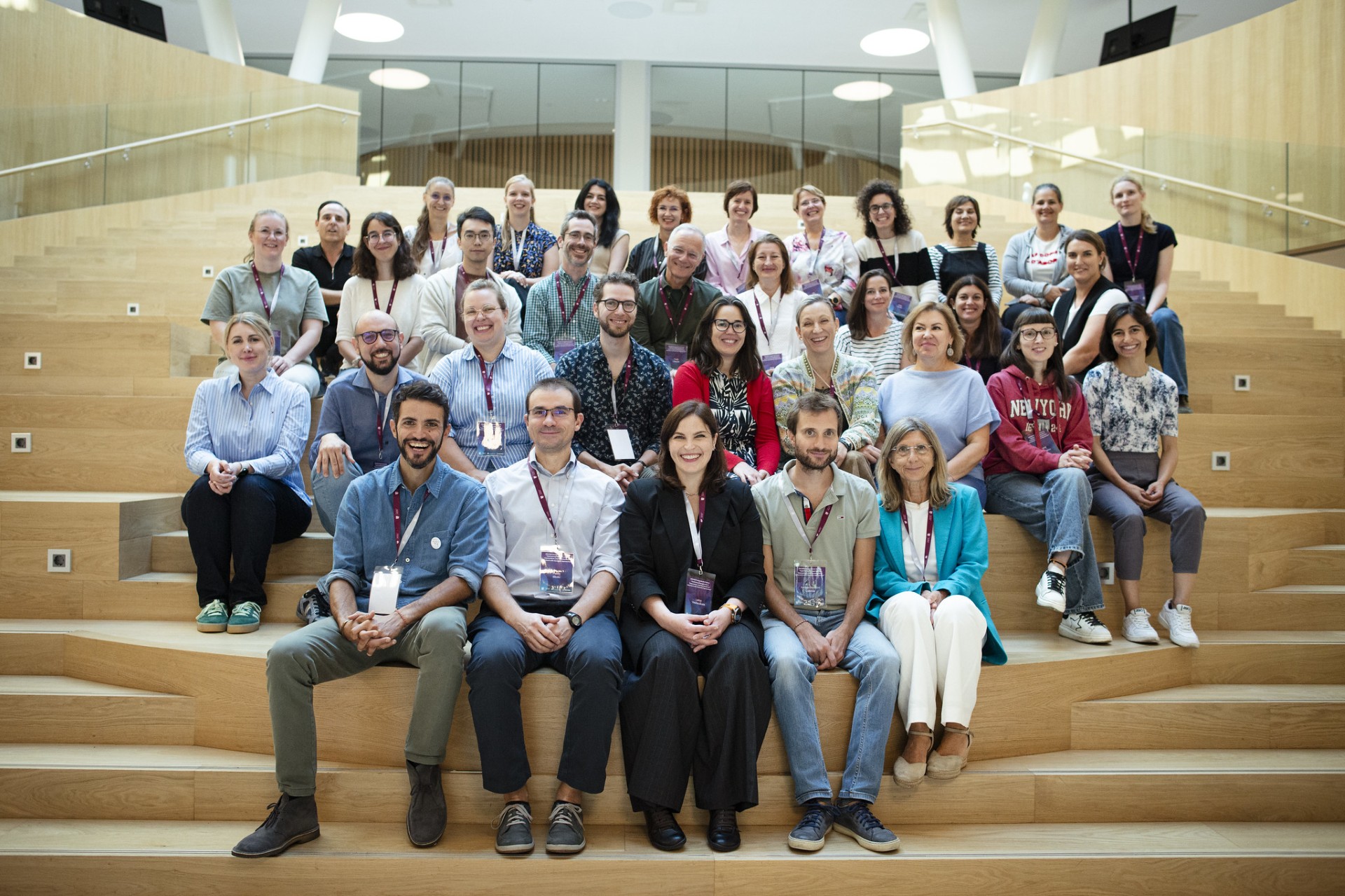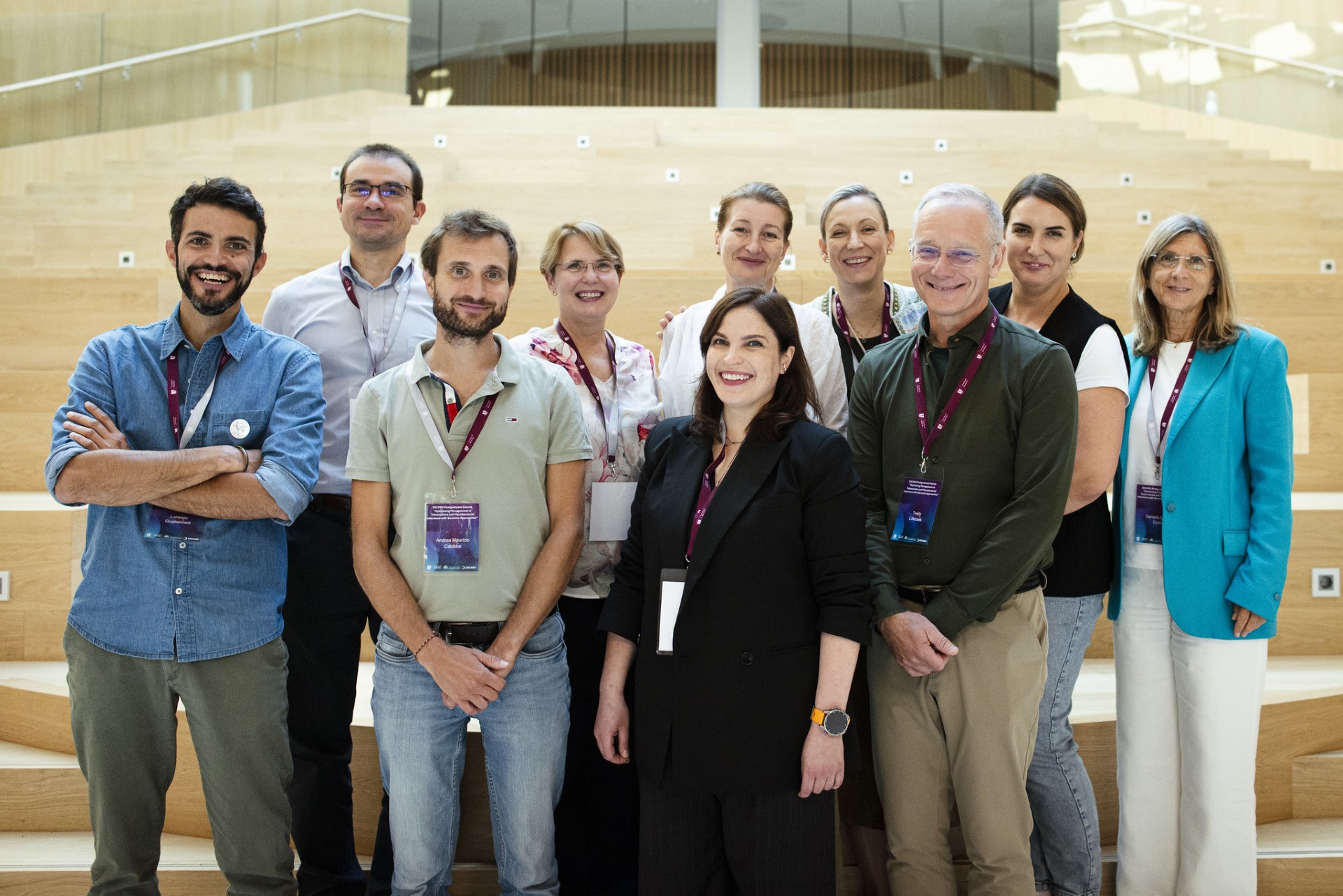VU MF Medical Science Centre Hosts Genomics Training for Experts in Mycobacteriology
 Moment of the event / MF archive
Moment of the event / MF archive
From the 9th to the 11th September mycobacteriology experts and clinicians gathered at the Medical Science Centre of the Faculty of Medicine (MF) at Vilnius University (VU) for an international postgraduate course titled, “Optimising the Management of Tuberculosis and Mycobacterial Infections with Genomic Approaches”, delivered by the Study Group for Mycobacterial Infections of the European Society of Clinical Microbiology and Infectious Diseases (ESCMID-ESCMYG). The training was designed for experts and physicians specialising in tuberculosis (TB) and nontuberculous mycobacterial infections. The training was coordinated by Prof. Daniela Maria Cirillo from the San Raffaele Scientific Institute (Italy) and Dr Lorenzo Guglielmetti from Sorbonne University (France).
At the opening of the three-day training, Dr L. Guglielmetti, from the National Reference Centre for Mycobacteria at Sorbonne University, coordinator of the event, welcomed participants and emphasised the complexity of diagnosing and treating TB and other mycobacterial infections using genomic data. “It is an uncomfortable and even frightening topic for both microbiologists and clinicians, because, in a way, we have to get out of our comfort zone. When I talk about the results of genomic studies on TB and the conclusions they suggest, I always feel a sense of responsibility and pressure, but today it is very important for all of us to use this opportunity to discuss and raise questions on this topic. Currently, only one-third of patients worldwide with multidrug-resistant tuberculosis have access to successful treatment. Without better tools, we risk slipping back towards a pre-antibiotic era,” Dr L. Guglielmetti stressed.
The training programme included presentations by leading experts in mycobacteriology from Croatia, Denmark, France, Italy, Latvia, and Portugal. Laima Vasiliauskaitė and Rūta Mereškevičienė, PhD students at VU MF working on their dissertations on TB, also gave presentations and moderated the discussion of clinical cases.
One of the speakers, Dr Liga Kuksa, a Latvian pulmonologist and chair of the TBnet consortium, was asking the audience what is truly needed for the successful treatment of patients. “The medicines we have in our pockets are not the “golden bullets” that will save patients on their own. It is necessary to address and coordinate the inequalities in the distribution of medicines and their dosage. In addition, we must monitor the effectiveness of patient treatment on a monthly basis, even though we have no defined guidelines or recommendations to follow. So, in practice, at least in Latvia, we are trying to draw up such guidelines ourselves and, on the basis of these guidelines, to monitor the dynamics of patients’ recovery, including genomic data, and all the necessary measures, such as monitoring the drug side effects of the medication. For this, we use a few, very simple methods to detect early adverse changes in a patient’s course of treatment, such as early polyneuropathy, using a colour vision test, a vision test, or a simple peripheral neuro-system vibration test,” the doctor explained while sharing her experience.
Prof. Daniela Maria Cirillo, a World Health Organisation expert working in several TB working groups, compared the development of new TB diagnostic methods to a tortoise in an unequal race against the hare, when referring to the pharmaceutical companies developing anti-TB drugs. According to the professor, collaborative models are essential for any company developing diagnostic methods and reagents to be able to keep pace with the emergence of new drugs on the market.
 Moment of the event / MF archive
Moment of the event / MF archive
During the training, participants engaged in lively discussions on the nuances of interpreting genomic data when selecting the optimal diagnostic algorithm, treating multidrug-resistant tuberculosis, and controlling mycobacterial infections from the perspective of a clinician and a medical biologist. In addition, study visits were organised to the Infectious Diseases and Tuberculosis Laboratory and the Drug-Resistant Tuberculosis Unit of the Centre for Pulmonology and Allergology at the VU Hospital Santaros Klinikos.
This training required a significant involvement of several scientific organisations, including ESCMID, ESCMID-ESMYG, the European Society of Mycobacteriology (ESM), the Italian Association for Clinical Microbiology, the Lithuanian Society of Laboratory Medicine, and the ADVANCE-TB COST ACTION. The opportunity to hold the training and bring together the international community in Vilnius was made possible thanks to the active involvement of L. Vasiliauskaitė, a PhD student at the Department of Physiology, Biochemistry, Microbiology and Laboratory Medicine of the Institute of Biomedical Sciences at VU MF. During her doctoral fellowship in Milan at the San Raffaele Scientific Institute, she was introduced to genomic data analysis of Mycobacterium tuberculosis, and continues this learning journey at other reference sequencing centres for mycobacteria.
“This training is particularly important for Lithuania, as we still lack specialists capable of interpreting the results of genomic data and applying this knowledge in practice. Moreover, the limitations of conventional diagnostic methods used in Lithuania may lead to treatment failures and TB relapses in some patients if the precise drug resistance is not known. As a result, these multidrug-resistant TB genotypes continue to spread within and outside the country. Genomic epidemiology of TB is not feasible in Lithuania, as whole-genome sequencing of this pathogen – the only reliable way to investigate an outbreak and trace potential contacts to prevent further transmission – is not yet available,” L. Vasiliauskaitė explained.
L. Vasiliauskaitė is currently preparing her dissertation on Mycobacterium tuberculosis genotypes prevalent in Lithuania using whole-genome sequencing. Lithuania is the second most affected country in the European Union (EU) and the European Economic Area. Nevertheless, neither whole-genome nor target sequencing of TB is routinely used in Lithuania for diagnostics or genomic epidemiology. However, most countries in the EU have been systematically applying next-generation sequencing for several years.